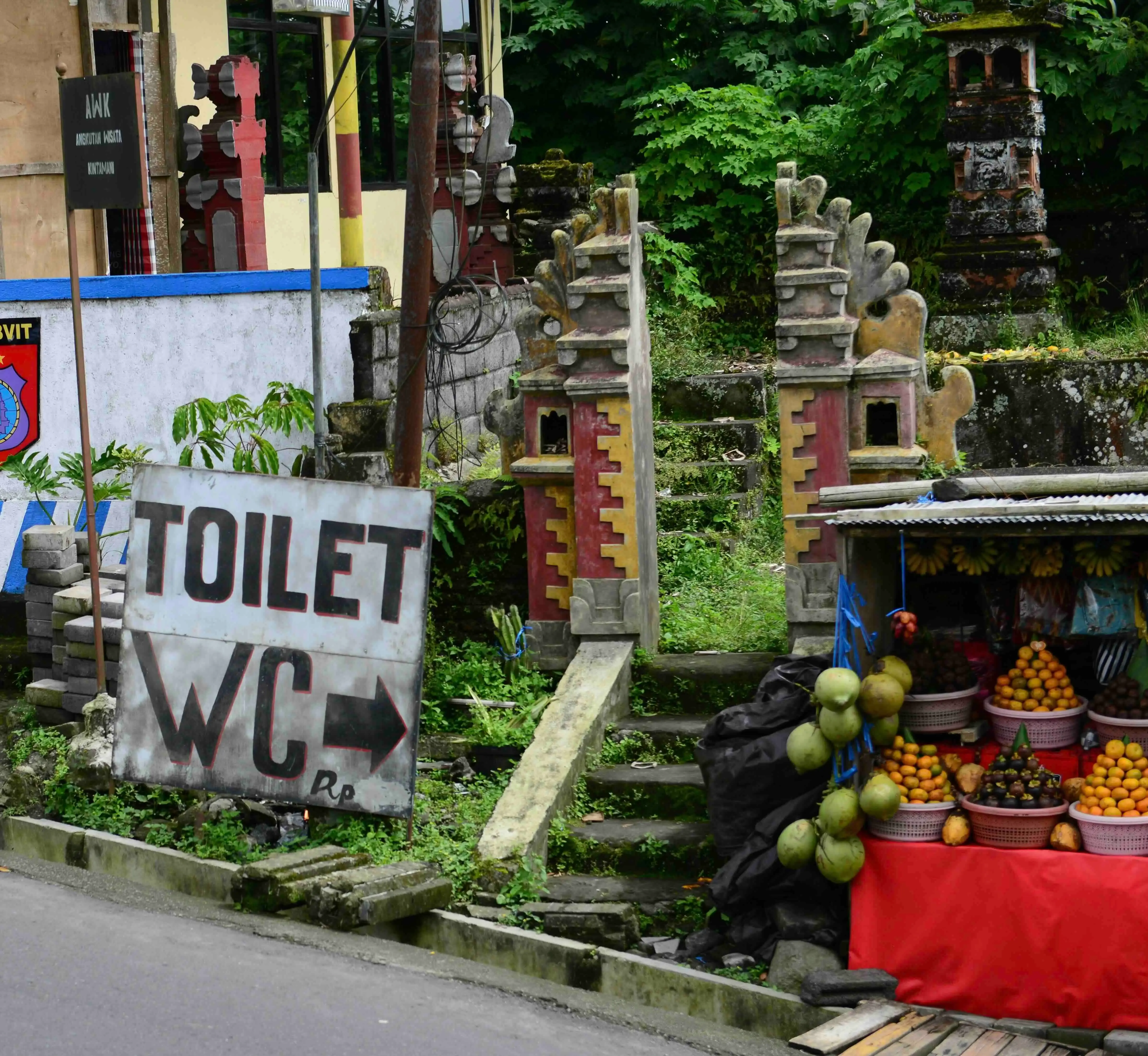
How to Avoid Bali Belly: Practical Tips for a Safe Trip

Bali is a paradise… but Bali Belly is the nightmare you want to avoid! Don’t worry, with a few tips, you’ll stay in top shape and be ready to fully enjoy your trip!
What is Bali Belly and its Symptoms?
Bali Belly is essentially traveler’s diarrhea, a temporary digestive issue often caused by consuming contaminated food or water. The typical symptoms include:
- Diarrhea: Frequent and urgent, it’s often the first sign that something is wrong.
- Stomach cramps: Painful cramping sensation.
- Vomiting: In case of more severe infections.
- Mild fever: Sometimes, your body responds with a mild fever.

Where Does Bali Belly Come From?
Here are the main points to watch out for:
- Tap water: Do not consume it, even for purposes like washing fruits or brushing your teeth. It may contain bacteria such as E. coli or other pathogens that can disrupt your digestive system.
- Food hygiene: Undercooked food, improper storage conditions, or handling with unwashed hands contribute to the onset of Bali Belly. Street food stalls are particularly susceptible, even though some of them offer delicious dishes.
- Local bacteria: Bali residents develop a natural immunity to local microorganisms, but your stomach is not prepared for them. Even reputable restaurants may inadvertently introduce bacteria that can make you sick.
Be cautious, as Bali Belly can be caused by much more than just water or food.

Practical Tips to Avoid Bali Belly
- Avoid tap water: Drink only bottled water, even for brushing your teeth.
- Stay hydrated: Even if you’re drinking bottled water, take small sips throughout the day to prevent dehydration in case of digestive issues.
- No ice: Skip the ice unless you’re sure it’s made with filtered water.
- Be cautious with fruit juices: Although fruit juices may look refreshing, they can be prepared with unfiltered water or ice. Always ask how they’re made before ordering.
- Wash your hands regularly: Before every meal, especially after handling money or touching public surfaces. You can also carry hand sanitizer.
- Bring basic medication: Have some basic intestinal medications on hand.
- Strengthen your gut flora: Take probiotics before your trip to help your digestive system get used to new bacteria.
- Check restaurant reviews: Opt for eating at well-rated establishments and avoid dubious street food vendors.

What to Do if You Catch Bali Belly Anyway?
- Stay hydrated: Drink small sips of water, broth, or an electrolyte-containing beverage.
- Get some rest: Give your body time to recover.
- Avoid dairy products, alcohol, and caffeine: These can worsen symptoms.
- Eat light foods: White rice, bananas, applesauce… these are gentle on your stomach.
- Call a doctor: If the symptoms persist and you don’t see any improvement, it’s best to contact your insurance or go to a health center. They will prescribe you medication, and your recovery will be much faster.

With these tips, you’re ready to enjoy Bali without worrying about Bali Belly. And good news: a comprehensive guide to Bali is in the works to help you plan your dream trip—stay tuned!
FAQs
How long does Bali Belly usually last?
▼
Symptoms of Bali Belly typically resolve within 1–3 days with rest and proper hydration. If symptoms persist or worsen, consult a doctor to ensure appropriate treatment.
Does everyone get Bali Belly while visiting Bali?
▼
No, not everyone gets Bali Belly. By following basic precautions, such as avoiding tap water and eating at reputable restaurants, you can significantly lower your risk of experiencing it.
Is bottled water in Bali always safe?
▼
Yes, bottled water is generally safe in Bali. However, always check that the seal is intact before purchasing, as some bottles may be refilled with tap water. Buying from reputable stores can help avoid this issue.
Does travel insurance cover Bali Belly treatment?
▼
Most travel insurance policies cover doctor consultations and treatment for Bali Belly. Before traveling, review your policy details to ensure this type of coverage is included.
![[object Object] Logo](https://d1xq6h5cnvy9vk.cloudfront.net/blogs-app/assets/affiliates/agoda.png)
![[object Object] Logo](https://d1xq6h5cnvy9vk.cloudfront.net/blogs-app/assets/affiliates/12go.png)
![[object Object]](https://d1xq6h5cnvy9vk.cloudfront.net/travels-app/images/cover-guides/en/porto.webp)
![[object Object]](https://d1xq6h5cnvy9vk.cloudfront.net/travels-app/images/cover-guides/en/koh-yao-noi.webp)
![[object Object]](https://d1xq6h5cnvy9vk.cloudfront.net/travels-app/images/cover-guides/en/ibiza.webp)
![[object Object]](https://d1xq6h5cnvy9vk.cloudfront.net/travels-app/images/cover-guides/en/san-andres.webp)